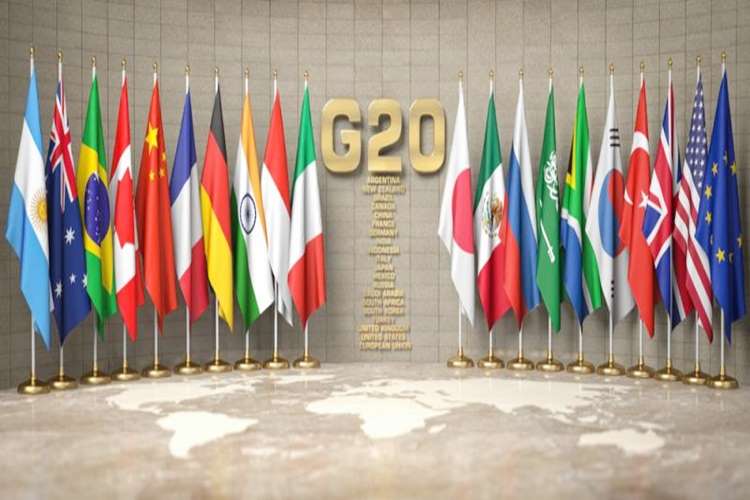
India will host the G20 convention for the first time and assume the presidency of the grouping for one year starting this December. India’s G20 presidency comes at a time when the world is facing a climate crisis, rising polarisation, a global recession, and a destructive war. To make an impact, the country will need to prepare an agenda that focuses on continuity, post-pandemic economic revival, and the green transformation of the world.
As the G20 president, India will be expected to nudge other G20 members to take significant actions to ensure international financial stability, climate change mitigation, and sustainable development. Of all the issues that are central to the G20 agenda, some are of special concern to India, especially climate change and malnutrition. India is one of the most vulnerable nations to changing climatic conditions and it ranks dismally low on the Global Hunger Index.
READ | Surging dollar: Emerging markets struggle to weather economic impact
India is expected to capitalise the opportunity offered by the G20 Presidency to emerge as the leader of the global action against climate change. The country must leverage its global stature, lobbying power and leadership to make an impression. What exactly does it need to do? Hold developed countries accountable for inaction towards climate change mitigation and nudge them to do what they should be doing. This is about holding a mirror to the developed nations on their contribution to global warming. Developed countries, which are responsible for creating the mess in the first place, have better financial capacity and technological capability to tackle the issue. They should hence bear the major part of the burden.
While holding other nations accountable on climate change, India needs to be accountable on the issues of malnutrition and hunger. The country has challenged the reliability and relevance of the Global Hunger Index 2022 report. While there are some issues in the construction of the index, India must accept its failure in tackling malnutrition. While it has taken some strides in reducing hunger, it has performed poorly on reducing malnutrition. It must realise that there is no global conspiracy to defame India, and what is evident is the inability of the government to accept its failures.
UN Secretary General Antonio Guterres said India’s presidency helped the creation of effective systems of debt restructuring. Guterres said the developing countries are facing a perfect storm – a combination of the post pandemic economic crisis and soaring food and fuel prices due to the Ukraine conflict. The UN chief said there was a need for reforms in international economic and financial systems which is built by the rich for the rich.
The G20 convention
The G20 is a grouping of the world’s largest economies – both the industrialised and developing nations. The multilateral bloc has 19 countries and the European Union (EU) as members. Together, the bloc accounts for around 80% of international trade, 90% of the global GDP, two thirds of the global population, and roughly half the world’s land area. While the convention was founded in 1999, the members of the convention have been meeting at least once a year post the financial crisis of 2008. India has been an active participant of the convention which so far has been graced by two Indian Prime Ministers, Manmohan Singh and Narendra Modi.
The convention exercises considerable global influence. It is criticised for limited membership, lack of executive powers, and for undermining international institutions. After Russia invaded Ukraine this year, questions have also been raised over Moscow’s membership in G20.
READ | Xi Jinping consolidates control, but slowing Chinese economy poses challenge
The G20 members are Argentina, Australia, Brazil, Canada, China, France, Germany, India, Indonesia, Italy, Japan, Republic of Korea, Mexico, Russia, Saudi Arabia, South Africa, Turkey, the UK, the US, and the European Union.
As G20 chair, India will invite Bangladesh, Egypt, Mauritius, Netherlands, Nigeria, Oman, Singapore, Spain and UAE as guest countries. Also, International Solar Alliance, Coalition for Disaster Resilient Infrastructure and Asian Development Bank will be welcomed as guest international organizations.
The digital transformation of the world is another major item on the G20 agenda. Here, India has lot to contribute as it is an early mover. The Narendra Modi government has given primacy to the digital economy which is key to India becoming a $5 trillion economy. India has to ensure that the global technological advancement does not come at the cost of developing nations’ interests. It must see G20 leadership as an opportunity to restructure the multilateral order, which is loaded heavily in favour of the advanced economies.
